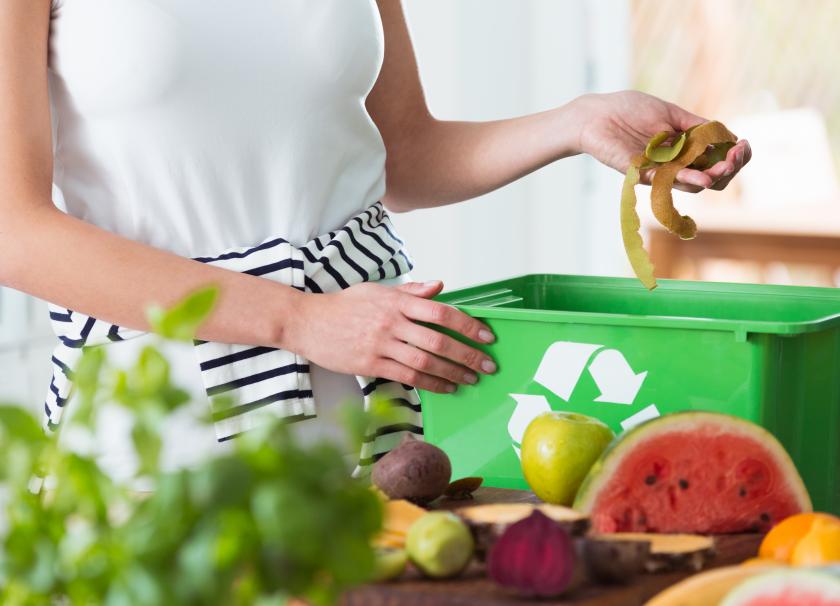
4 Ways to Reduce Your Food Waste
It’s the New Year, our favorite time for goal-setting, making positive resolutions, and shifting our impact. One of the Co-op’s goals is to become a Zero Waste facility. Our staff works to divert as much food waste as we can - and we hope our member-owners will join us in this goal too.
According to the National Resource Defense Council, the average American household of four is throwing away $120 each month in the form of uneaten food. And each one of us - consumers - are the largest source of food waste, more than grocery stores and restaurants combined. But there's good news: we can do something about it.
Shop Your Fridge First
Make a resolution to your refrigerator to shop at home first. How many of us open the door, take a glance, then shut the door and forget about the delicious produce on the back shelf, just waiting to be prepped? Write a reminder to yourself and put it on the front of your refrigerator: “Shop Here First!”
Create a noticeable “Eat First” area inside your fridge with brightly colored tape or washable markers. Commit to two weeks of cooking or eating what you already have at home before buying more. Make sure to check the impact on your wallet, too.
Befriend Your Freezer
One of the best tools that you already have at home is your freezer. Almost any food can be frozen and safely stored for later. Especially if you’re about to take a vacation!
A little prep can go a long way if you freeze in meal-size portions. Remember to keep food airtight, while also leaving room for expanding liquids. Using clear containers and labeling with contents and a date will save you from questionable frozen items that you discover in the future.
Create a Food Inventory
Take a month to inventory your meals, including your shopping list. This is a great exercise and resolution to start off the new year. Use a journal or planner to document your daily meals and your shopping lists, including the costs.
Be mindful about how your diet may change throughout the week. Maybe you’re celebrating a birthday at your friend’s favorite restaurant, out on a date, attending a potluck, or getting a bite to eat at work. You may be surprised at how many times you eat out, or how much you end up spending on snacks rather than a nutritious dinner.
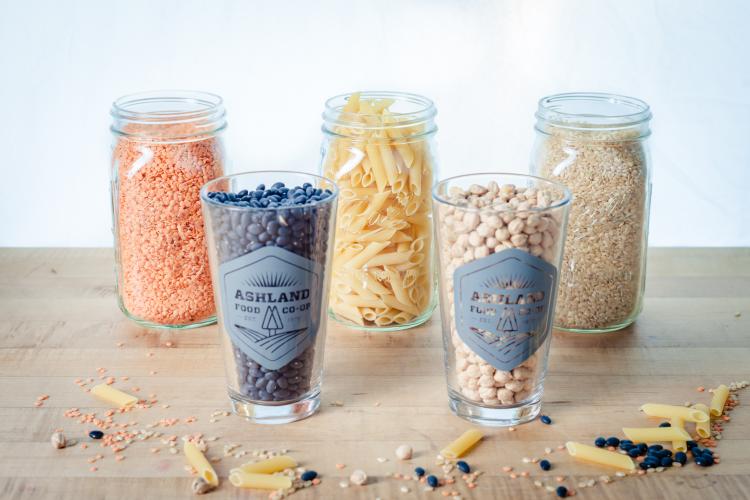
Buy in Bulk
Commit to buying a new staple item in bulk. For packaged goods, not only are you buying the product, but you’re also buying the carton.
Choose a new loose-leaf tea, spice, grain, flour, oil, legume, or even food for your dog or cat to purchase in bulk. Try out a conditioner, shampoo, or soap in the Wellness department. Bring in a reusable container and measure the tare weight in our Bulk department - then see for yourself how one change in packaging can affect the price.
The benefits of choosing four food waste resolutions are great for your bank account, your refrigerator, your health, and your carbon footprint. Together we can create a more sustainable and abundant lifestyle, and change that 40% of food waste into a zero waste dinner table.
More Co-op News
Choose To Reuse
by Rianna Koppel, Co-op Sustainability Coordinator
At the Ashland Food Co-op, we are committed to becoming Zero Waste by 2030. Along the way, we’ve learned a lot about packaging and single-use at our store. Our owners care deeply about reducing plastic waste, and we do too!
Reusable Bags
At the co-op, we have many different bag options… So what's the best choice?
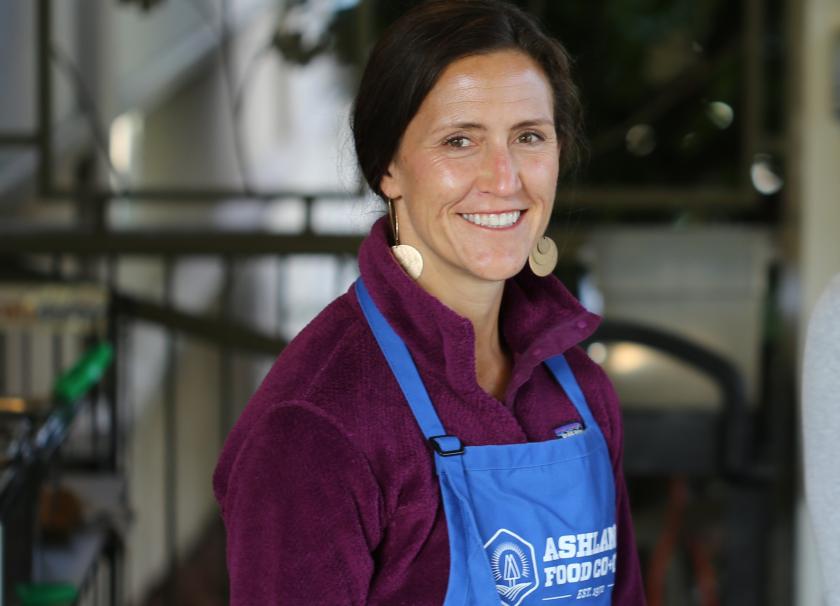
Lisa Beam: Why I'm a Board Member
Why serve on the Board of Directors at the Ashland Food Coop? This was the question that I was faced with about a year ago.
I have lived, worked and shopped in Ashland for the last 20 years. Many of those years I have actively participated on non-profit boards, civic organizations and committees. However, in the last few years I stepped away from those responsibilities to focus on family and business life.
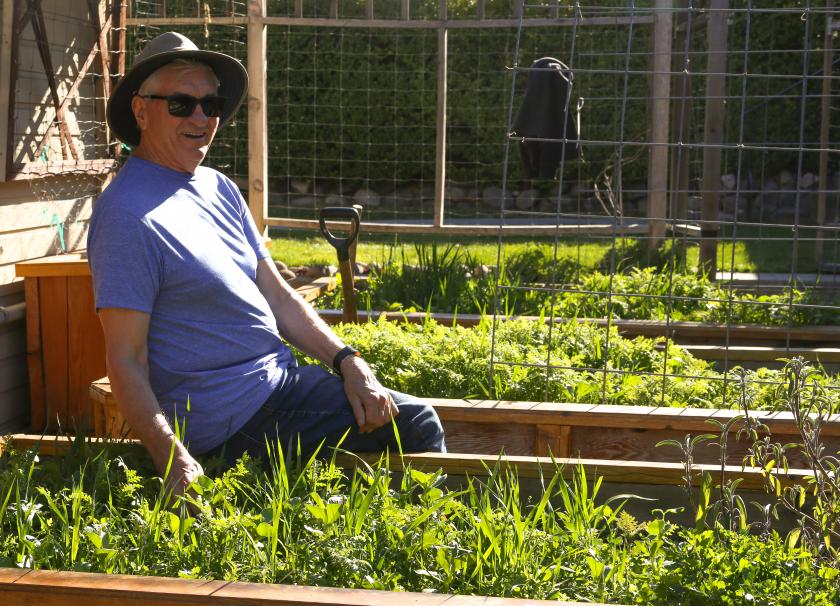
Henry in the Garden: The Pollinator Plan
By Henry Herting, Co-op garden volunteer
It's that fun time of the year when we get to plan our gardens. This year since our pollinators are taking such a hard hit, we are planning a pollinator garden.
Some plants that are considered good for pollinators are not so good fo the gardeners. They are invasive; they are weeds. Nobody likes weeds in their garden - who likes getting down on their knee pads and clawing at deep-rooted weeds growing in places where you don't want them?

Rogue To Go at the Co-op
We are excited to announce the official launch of Rogue To Go at the Ashland Food Co-op!
Rogue To Go is a reusable container pilot program. The pilot connects five participating restaurants by offering a reusable container that can be used for meals to-go and help eliminate single-use boxes. These O2GO containers are made locally in Bend, Oregon by OZZI. The bright green containers are 100% recyclable through a specialty recycler - truly zero waste!
How can you start using Rogue To Go? Check out the steps below and follow along with a walk-through video.
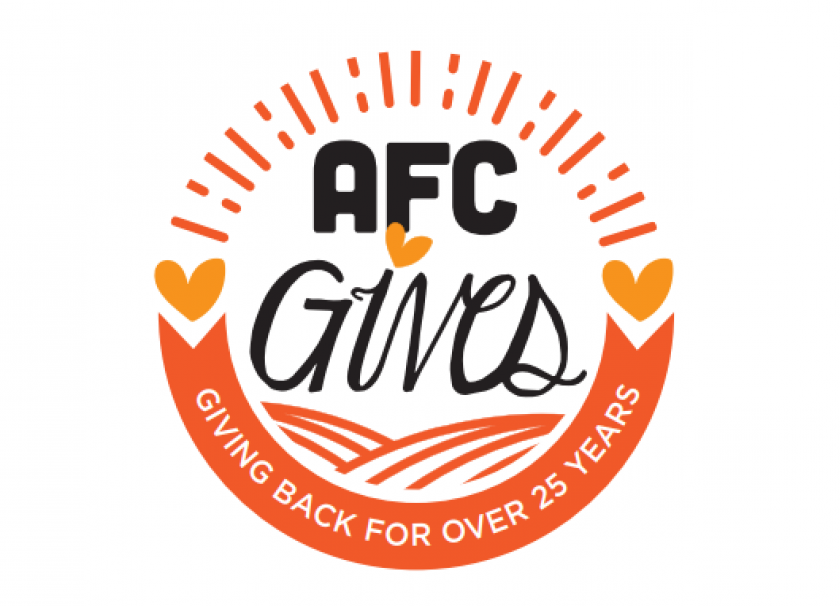
Apply for an AFC Gives community grant
For over 25 years, the Ashland Food Co-op has been re-investing in the local community by awarding grants to non-profit organizations doing important work in the Rogue Valley. Putting the seventh cooperative principle, "concern for community," into action, over $30,000 was donated in 2019 - and in 2020, there are even more opportunities for non-profits.
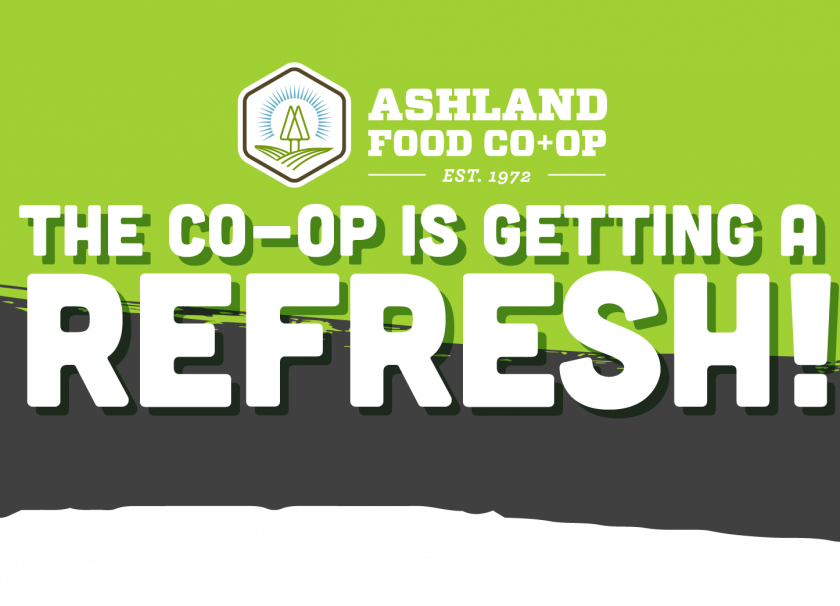
The Co-op is getting a refresh
We are giving our store a much-needed fresh coat of paint. We think you'll enjoy the changes!
When
The painting team will begin our project on February 5th, 2020 with a start time of 9pm.
Where
The entire retail store, deli serving area and interior seating area will receive a fresh new coat of paint.
Timeline
If all goes as planned, our painting project should be finished by February 20.
Will Store Hours Change?
No. We will be painting from 9pm to 5am.
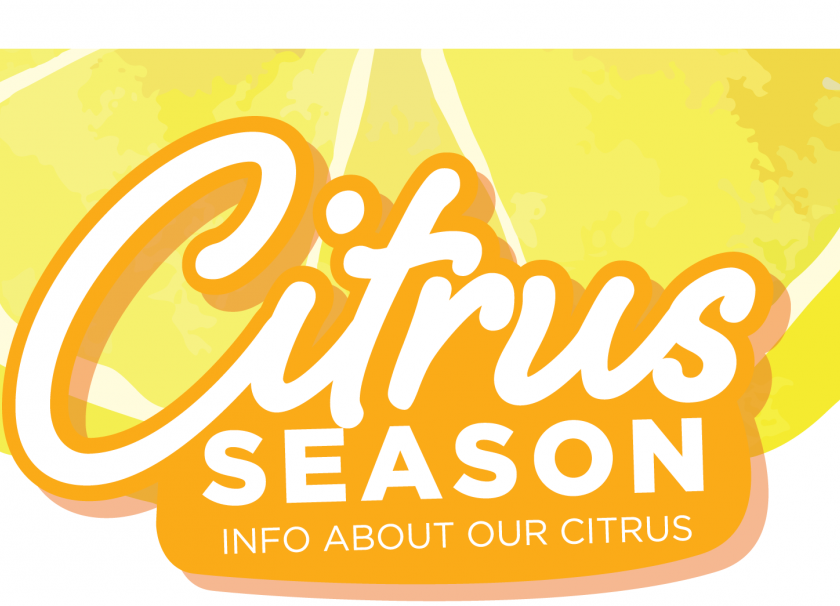
Explore citrus!
Looking to explore some new citrus varieties? Know more before you go! Check out the many types of sweet, sour and somewhere in between that you can enjoy at the Co-op! (Availability may vary due to seasonality.)
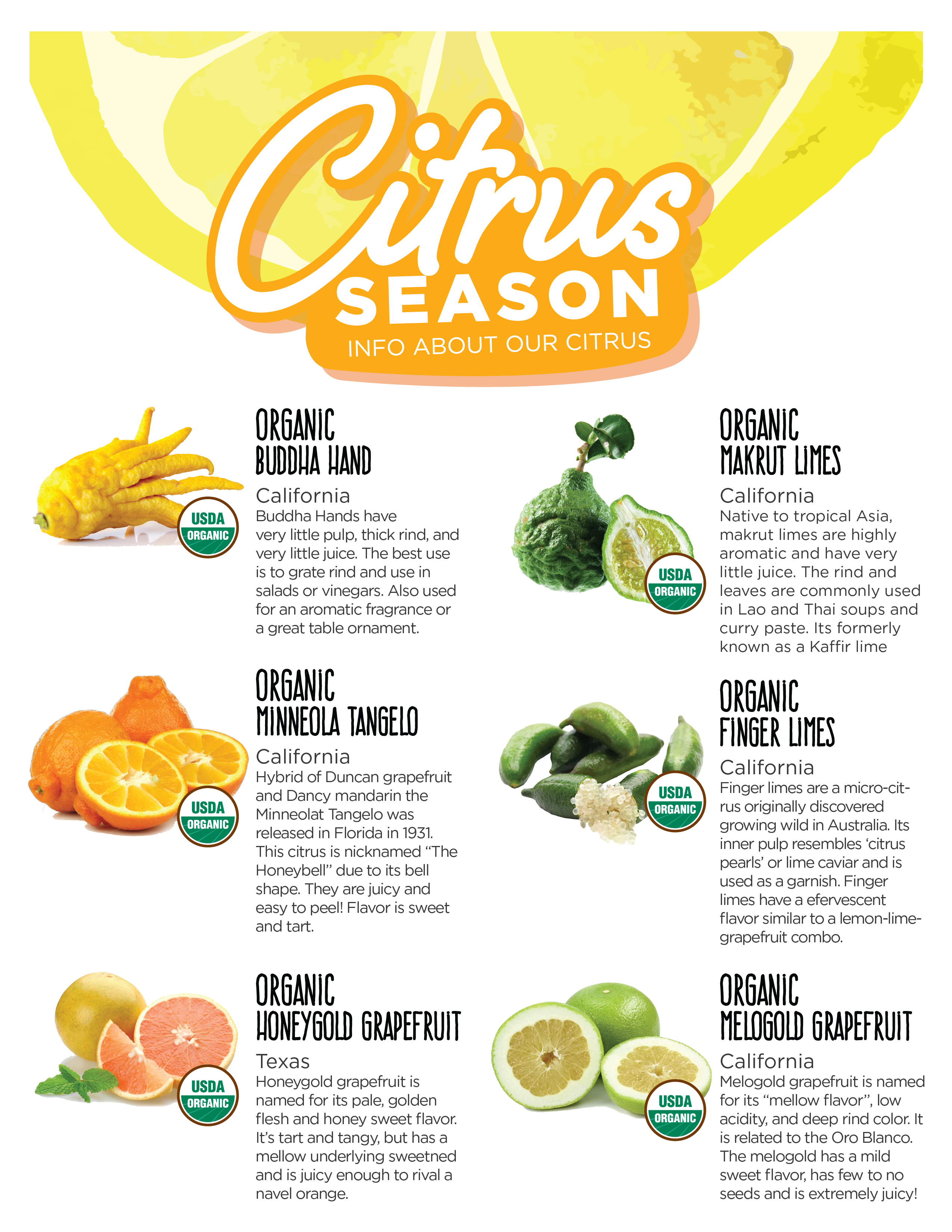
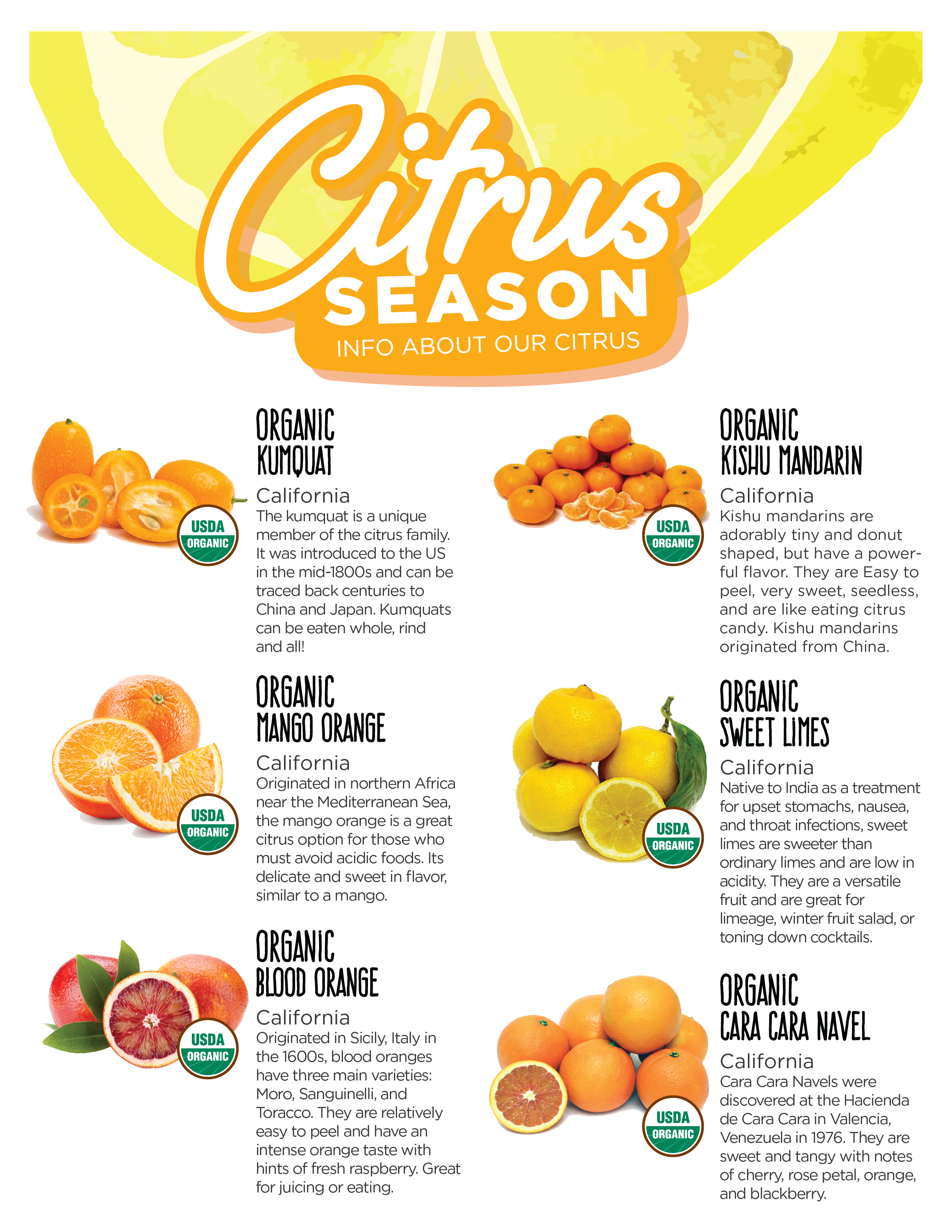
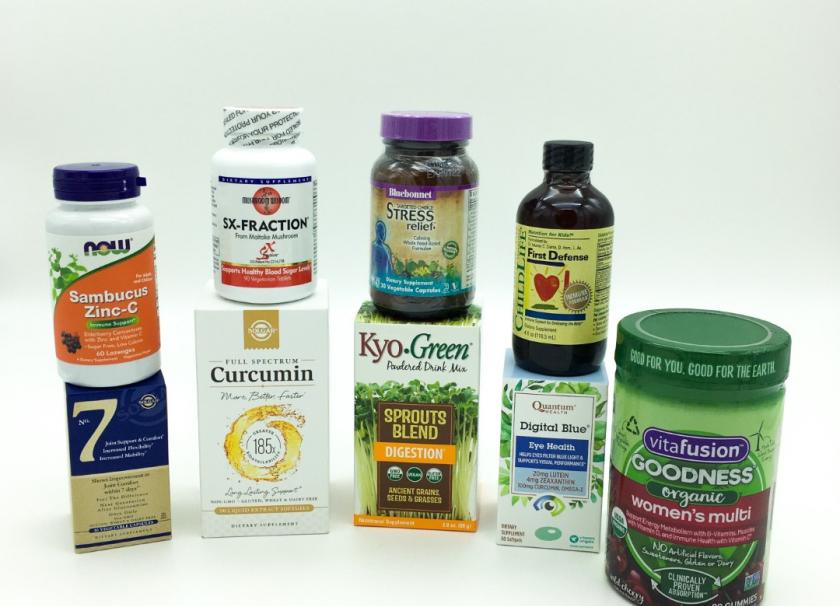
Taste for Life winter wellness giveaway
It's a month of giveaways from Taste for Life!
Giveaway #1 has finished up - so it's time for #2! This giveaway runs 1/27-2/2, so sign up below.
This package includes: NOW's Sabucus Zinc-C lozenges, Mushroom Wisdom's SX-Fraction, Bluebonnet's Stress Release formula, ChildLife's First Defense immune formula, Vitafusion's Organic Women's Multi vitamin, Quantum Health's Eye Health supplement, Kyo-Green Sprouts Blend digestion supplement, Solgar's full spectrum Curcumin supplement, and Solgar's No. 7 joint comfort supplement.

Rogue Co-ops College Scholarship
As part of the Rogue Co-ops, a group of Rogue Valley cooperative businesses that includes Ashland Food Co-op, Grange Co-op, Medford Food Co-op, and Rogue Credit Union, we're excited to offer a scholarship opportunity to local high school students planning on attending college.
The Rogue Co-ops have collectively funded a $2,000 scholarship (and Grange Co-op offers an additional eight $1,500 scholarships) for students (in public, private or home school settings) who meet the following requirements:

Become an Owner-Volunteer with the AFC Board
The AFC Board of Directors is looking for owner-volunteers for three board committees: the Owner Engagement Committee (OEC), Board Development Committee (BDC), and AFC Gives Committee.
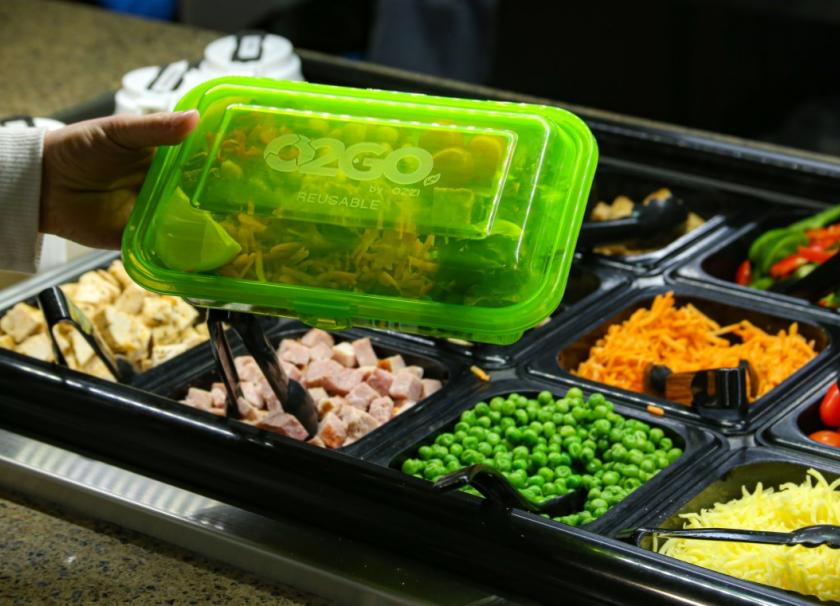
Sustainability Update: Building on a Strong Foundation
Sustainability Update
Our team has been working on many different projects throughout the year, taking great steps to fulfill our four sustainability goals. Our four goals to achieve by 2030 are: carbon neutrality, zero waste, eliminating toxic chemicals, and being a leader in our sustainable community. We look forward to our sustainable success in the upcoming decade!

2020: A vision for the future through Co-ops and local food
As the 2010s come to a close, the “20/20” eyesight analogy couldn’t be more appropriate for the new decade. With our eye on the future, there’s clearly a sense of urgency and awareness of the unique times we’re living in: a changing climate, increases in costs of living, and the shared pressures of a globalized world.
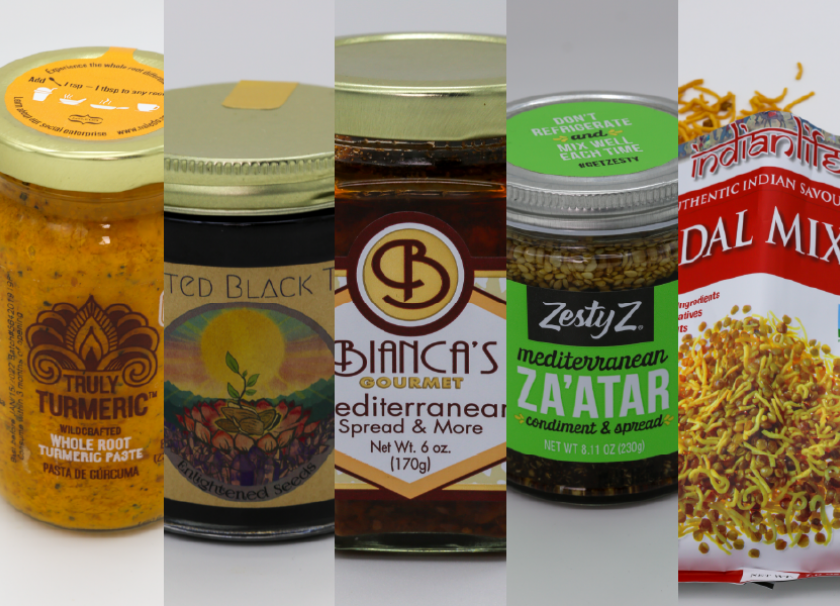
5 Items to Try: Spreads, Condiments & Snacks
It's fun trying new things! Here are five items you can find at the Co-op with a distinctly international flavor. Whether you're spreading them on some bread or naan, mixing up a salad dressing, or just want something salty and crunchy to snack on, try these out next time you want to elevate your dishes.
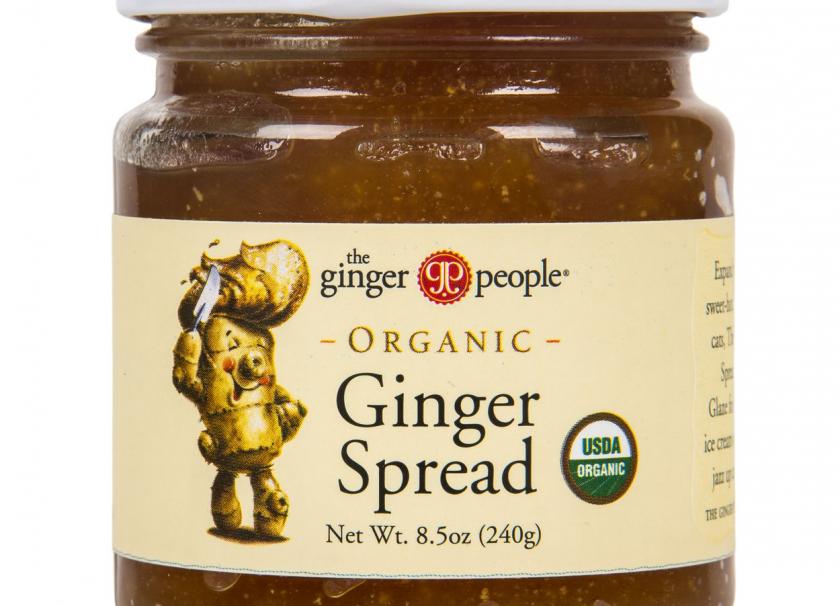
10 Ways to Enjoy: Ginger Spread
Sometimes you might come across a product at the Co-op and ask, "That looks good, but how in the heck can I use it in my cooking?" To answer that question, we picked this Ginger Spread made by The Ginger People (famous for their Gin-Gin candies). Grab a jar and try some of these unique applications in your own kitchen - or get inspired to utilize it in another way.
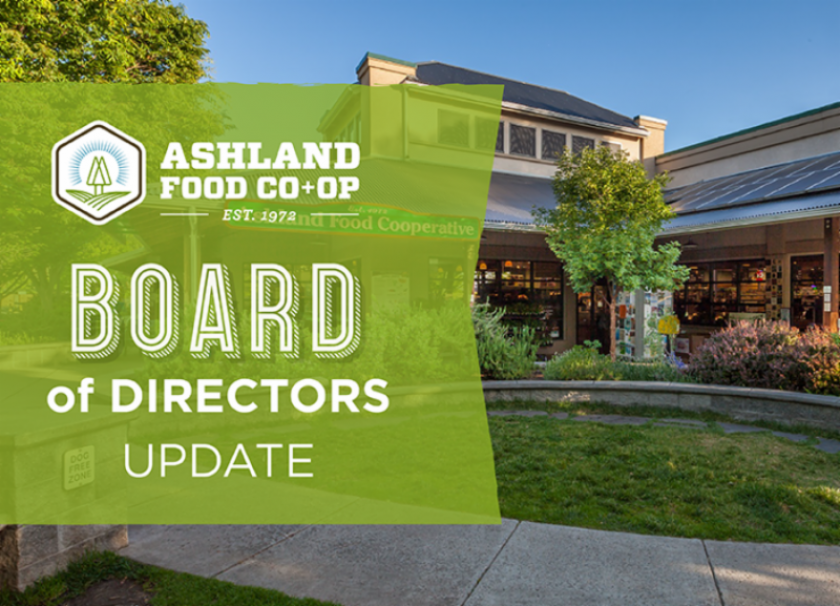
Meet Your Board: Melina Barker
Hello, Co-op members! My name is Melina Barker, and I joined the AFC Board of Directors this July. Since then, I have been busy learning about all the work the previous members have done to craft strategic goals to support the success of the AFC.
